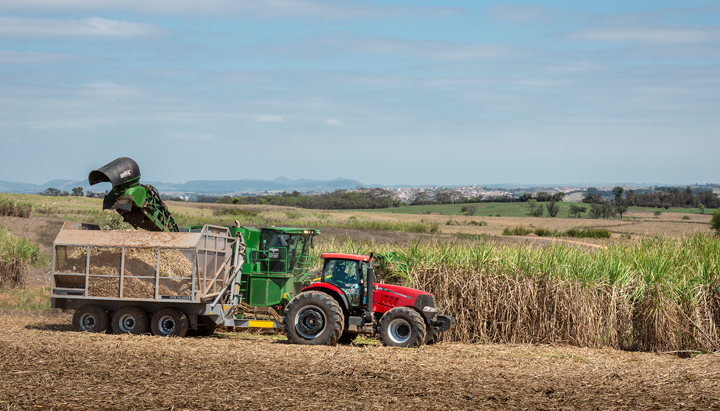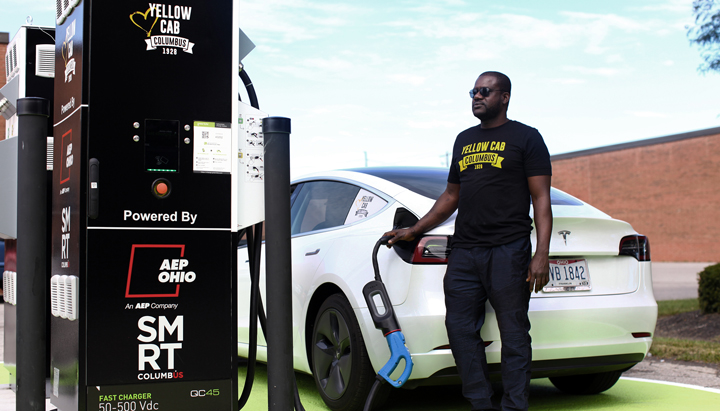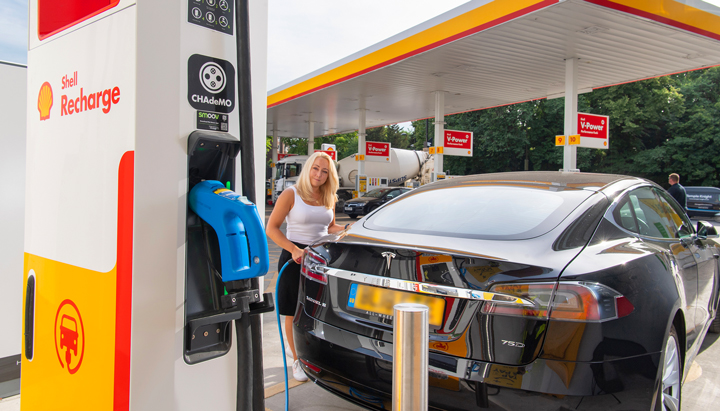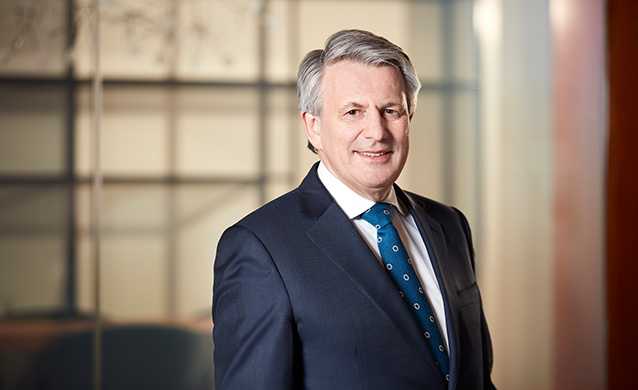Fuelling mobility
Biofuels
Biofuels are a renewable energy source, made from organic matter or waste, which can significantly reduce carbon dioxide (CO2) emissions from transport.
Biofuels are blended with other fuels such as petrol and diesel. They can help decarbonise the aviation, marine and heavy-duty road transport sectors.
We are one of the world’s largest biofuels producers through our Raízen joint venture (Shell interest 50%, not Shell-operated) in Brazil.
Visit www.shell.com/biofuels for more on our approach to biofuels.
In 2019, we blended more than 10 billion litres of biofuels into our petrol and diesel worldwide.
Turning waste into fuel
Most biofuels are produced from agricultural crops, such as corn, sugar cane or vegetable oil. Our main focus for biofuels development and investment is in using waste, inedible crops or forestry products.
In 2019, we announced that we will support SkyNRG to develop Europe’s first dedicated sustainable aviation fuel production plant by bringing our technical and commercial expertise to the development of the plant. Once operational, the plant will produce 100,000 tonnes of fuel made from waste cooking oil and will run on sustainable hydrogen.
The combined benefits of the feedstocks, sustainable hydrogen and low-carbon energy used to power production are expected to make the life-cycle carbon emissions of the plant’s sustainable aviation fuel 85% lower than conventional jet fuels, as estimated by the Roundtable on Sustainable Biomaterials. Read more about the plant at www.shell.com/shell-aviation-supports-skynrg.
Together with World Energy, we have agreements with Air France and Lufthansa to fuel their flights from San Francisco International Airport. The type of sustainable aviation fuel we supply can reduce CO2 emissions by up to 85% compared with conventional jet fuel.
Shell is also a founding member of the Clean Skies for Tomorrow Coalition, which will work together to help make sustainable aviation fuel widely available. This means, for example, encouraging blending of biofuels derived from waste with conventional jet fuel, allowing for a gradual introduction of the fuel into supply chains without the need to adapt engines. The coalition aims to support the ambition to achieve net-zero emissions in the aviation industry by 2050.

In 2019, Shell companies signed agreements with airlines including Lufthansa to supply sustainable aviation fuel.
We are also investing in renewable natural gas in the USA and in Europe for use in natural gas-fuelled vehicles. Renewable natural gas, also known as biomethane, is gas collected from landfill sites, food waste or manure and then processed until it is fully interchangeable with conventional natural gas. In the USA, we plan to expand and upgrade the JC Biomethane plant in Junction City, Oregon.
Developing advanced biofuels
We continue to invest in new ways to produce advanced biofuels from sustainable raw materials, such as waste and cellulosic biomass from non-food plants.
We have a demonstration plant at the Shell Technology Centre Bangalore, India, which features an advanced biofuel process called IH2, a technology that can turn waste into transport fuel. The plant can process around 5 tonnes a day of feedstock, such as agricultural waste, and aims to demonstrate the technology for possible scaling up and commercialisation.
Sustainable production
Shell aims to have 100% of the sugar-cane ethanol and South American soy biodiesel used in Shell-blended or traded biofuels certified as sustainable by 2020. In 2019, 80% was certified as sustainable.
All the palm oil that we blend is certified by the Roundtable for Sustainable Palm Oil (RSPO) or International Sustainability and Carbon Certification for feedstocks or covered by offsets from the RSPO certificate trading system. We continue to participate in the RSPO and support its latest set of standards for sustainable palm oil production adopted in 2018.
Global bio-component purchase [A][B]
by feedstock
[A] Does not include purchases by Raízen.
[B] Percentages do not add up to 100% due to rounding.
e-Mobility
Shell is exploring how best to meet the needs of electric vehicle drivers – at home, at work or on the road. We are expanding our charging network worldwide.
Visit www.shell.com/electric-vehicle-charging for more on e-mobility.
Shell-owned NewMotion is Europe’s largest electric charging company, with more than 60,000 private electric charging points in France, Germany, the Netherlands and the UK. It also provides around 250,000 users with access to more than 135,000 public charging points in 35 European countries.
In 2019, we expanded our e-mobility business in the USA by acquiring Greenlots, a California-based company that provides around 5,000 electric vehicle charging points, charging network software and grid services across the country. Greenlots also has a growing business in 12 other countries, including Canada, Malaysia, Singapore and Thailand.
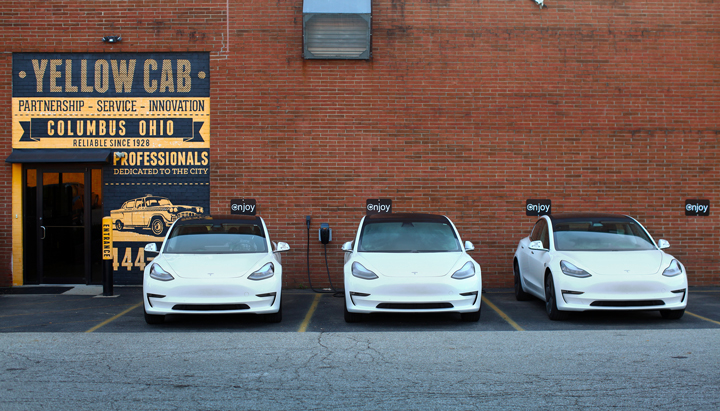
Greenlots uses a software platform that enables electric vehicle charging infrastructure to be deployed at scale.
Fast-charging with renewable electricity
Electric vehicle drivers need to top up their batteries much faster during a journey than when they are at home or work. We are growing our Shell Recharge fast-charging service, which is now available at more than 300 forecourts across Canada, China, Germany, the Netherlands, Singapore, the UK and the USA. In the UK, we offer Shell Recharge at sites using 100%-certified renewable electricity.
As part of our agreement with charging network operator IONITY, a joint venture of carmakers, we are installing 350 high-powered chargers at 60 of our biggest highway stations across 10 European countries.
e-fluids for e-vehicles
In 2019, we launched a new range of fluids designed specifically for battery electric vehicles. These fluids and greases improve the performance and efficiency of the vehicles.
Hydrogen
Hydrogen is a versatile energy carrier that can play a significant role in the transition to a low-carbon world.
It has great potential to help meet growing demand for cleaner transport. When driven, hydrogen vehicles do not emit carbon dioxide, only water vapour. If the hydrogen is produced using renewable energy, the fuel is virtually emission-free.
Shell is helping to build the infrastructure that will be needed if hydrogen is to fulfil its potential.
Learn more about how we are developing and using hydrogen to reduce greenhouse gas emissions at www.shell.com/hydrogen
Expanding our refuelling network
We are taking early steps to grow a network of hydrogen stations in Europe and North America, where we are part of several initiatives to encourage the adoption of hydrogen in transport.
In Germany, through our participation in the H2 Mobility Germany joint venture, we are working with the government and partners to develop a national network of around 100 hydrogen refuelling stations. Currently, 82 stations are open, 40 at Shell retail sites.
In the USA, we are working with Toyota and the state of California to open nine hydrogen refuelling stations. We are also developing with our partners three new refuelling stations for heavy-duty hydrogen fuel-cell trucks. One of these stations will use hydrogen made from renewable biogas.
In the UK, we are partnering with ITM Power, a company specialising in electrolysers, to make hydrogen fuel available at six Shell retail sites. The hydrogen is produced on-site using electricity from renewable sources.
World’s largest electrolyser
At our Rheinland refinery in Germany, we are working with our partners to build an electrolyser that produces hydrogen using renewable energy. The new hydrogen electrolysis plant, which features advanced polymer electrolyte membrane technology, is expected to be the largest of its kind in the world. The electrolyser is designed to have a capacity of 10 megawatts and produce 1,300 tonnes of hydrogen a year.
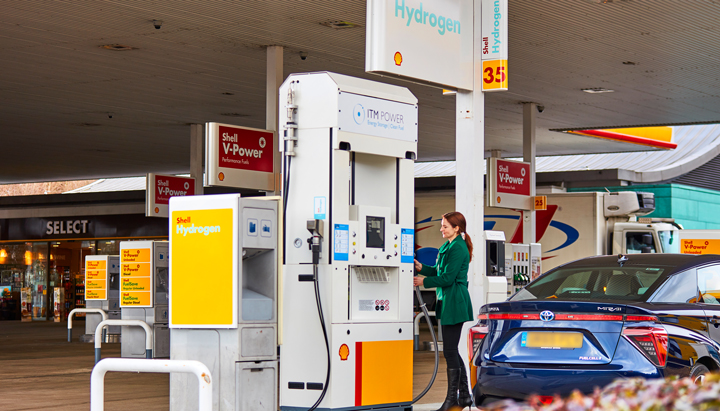
Our concept for the next generation of retail stations sees conventional fuels being sold alongside hydrogen.
Energy-efficient products
Shell V-Power petrol and diesel and Shell Helix engine oil increase engine efficiency by burning more cleanly and reducing friction and wear. These products lubricate and protect millions of vehicle engines worldwide every day.
Shell PurePlus Technology converts natural gas into a pure base oil – which can form up to 90% of a finished motor oil – to improve and protect an engine’s performance. For example, the technology is used in the Shell Helix 0W range of lubricants and can help to reduce car CO2 emissions by up to 4%.
For heavy-duty vehicles, Shell Rimula engine lubricants help heavy-duty diesel engines reduce friction to improve fuel economy and therefore reduce CO2 emissions.
Read more about our fuels and lubricants at www.shell.com/motorist
We are also developing new technologies that create more durable, sustainable and energy-efficient roads. Using our clear bitumen in a light-coloured asphalt, for example, can reduce the need for lighting in tunnels by up to 40% without affecting driver visibility.
 Climate change
Climate change
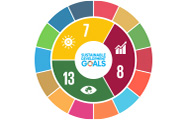 Sustainable development goals
Sustainable development goals
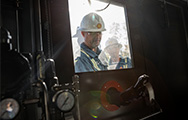 Safety
Safety
 About our data
About our data
